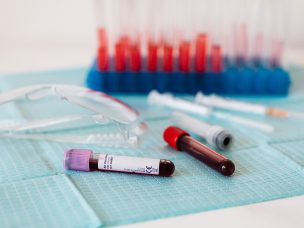Multiple Myeloma
Circulating Plasma Cells Impact Prognosis in Multiple Myeloma
The prognostic value of circulating plasma cells in patients with newly diagnosed multiple myeloma was examined in a recent study. Multiple myeloma prognosis can be affected by the presence of circulating plasma cells. Higher levels of circulating plasma cells are linked to poorer prognosis. Integrating data on circulating plasma cells could refine existing prognostic models...
Clarifying Disparities in Multiple Myeloma Burden: Insights From a Modeling Study
A recent study provides clarity on age-, gender-, and race-associated disparities in multiple myeloma incidence. The core finding is that differences largely stem from a preceding condition more common in specific groups. Multiple myeloma often develops following a premalignant, asymptomatic condition called monoclonal gammopathy of undetermined significance. Multiple myeloma shows varying incidence rates among different...
Elranatamab in Relapsed or Refractory Multiple Myeloma
Elranatamab demonstrated substantial and enduring responses with a favorable safety profile in patients with relapsed or refractory multiple myeloma in a phase 3 trial. Transitioning to a biweekly dosing regimen could improve safety outcomes in the long term while still ensuring the maintenance of therapeutic effectiveness. Elranatamab is a humanized bispecific antibody that targets both...
Multiple Myeloma Treatment Outcomes and Physician–Patient Side Effect Concordance
A recent study found that higher side-effect bother was related to worse health-related quality of life in multiple myeloma patients. The study also found patient–physician discordance in reporting of side effects. Multiple myeloma (MM) is the second most prevalent hematological malignancy in the United States. Evidence shows that physicians focus on survival outcomes when making...
Top 7 Latest Advances in Multiple Myeloma
The field of multiple myeloma (MM) treatment has seen significant advancements in recent years, which have improved median survival rates for patients from 3 years two decades ago to around 10 years now. One of the most notable advancements in the treatment of MM is the introduction of immune-based therapies, specifically anti-CD38 monoclonal antibodies. These...
Multiple Myeloma: Overcoming Gaps in Treatment and Overcoming Disparities
In this exclusive MD Newsline webcast Hematology-Oncology Specialists Dr. Mouhammed Kelta and Dr. Shaina Rozell discuss health disparities in Multiple Myeloma.
Multiple Myeloma: Empowering Patients & Doctors
Question: If a hospital is not equipped to do that study, how do doctors advocate for that? What kind of strategies have you seen to make sure those patients get care? And How can patients advocate for themselves to make sure that they get the proper tests that they need? Answer: So it really is...
Understanding Multiple Myeloma: Treatment Gaps, Racial Disparities, and Early Diagnosis
Intro: Hi everyone. My name is Shaina Rozell. I’m a hematologist-oncologist here with Affiliated Oncology. I also practice out of Advocate Christ as well as Advocate South Suburban. My emphasis is both hematology and oncology so I see multiple myeloma. I run a genetics clinic at Advocate Christ and also am very instrumental in our...
Multiple Myeloma: Early Signs and Key Symptoms
Question: So how does multiple myeloma typically start? At which point in that journey do the people who are most impacted end up in front of a doctor? Answer: I would say those patients who actually seek care or who actually go to the doctor may be getting blood tests. And that astute position may...
More Medical News













